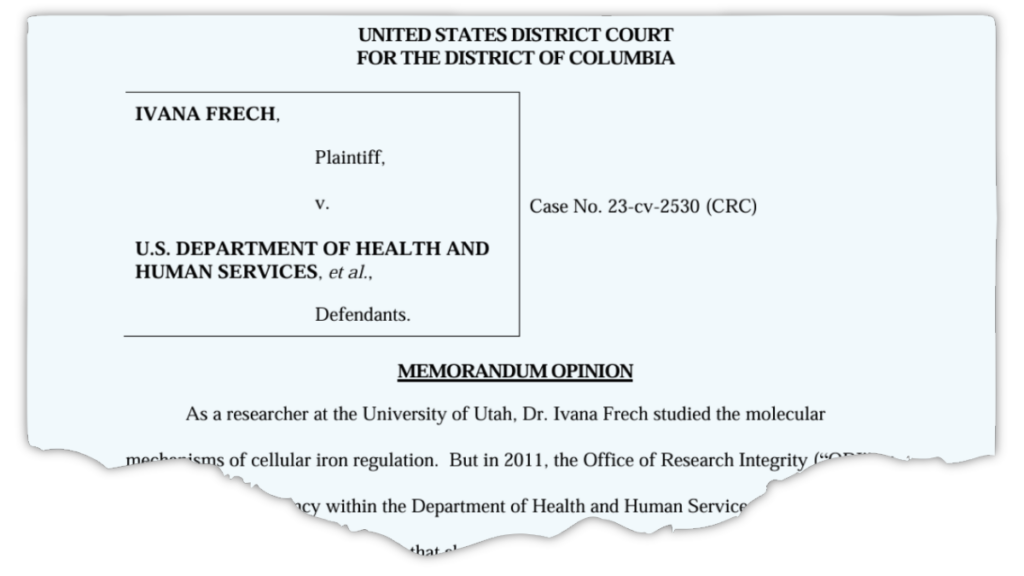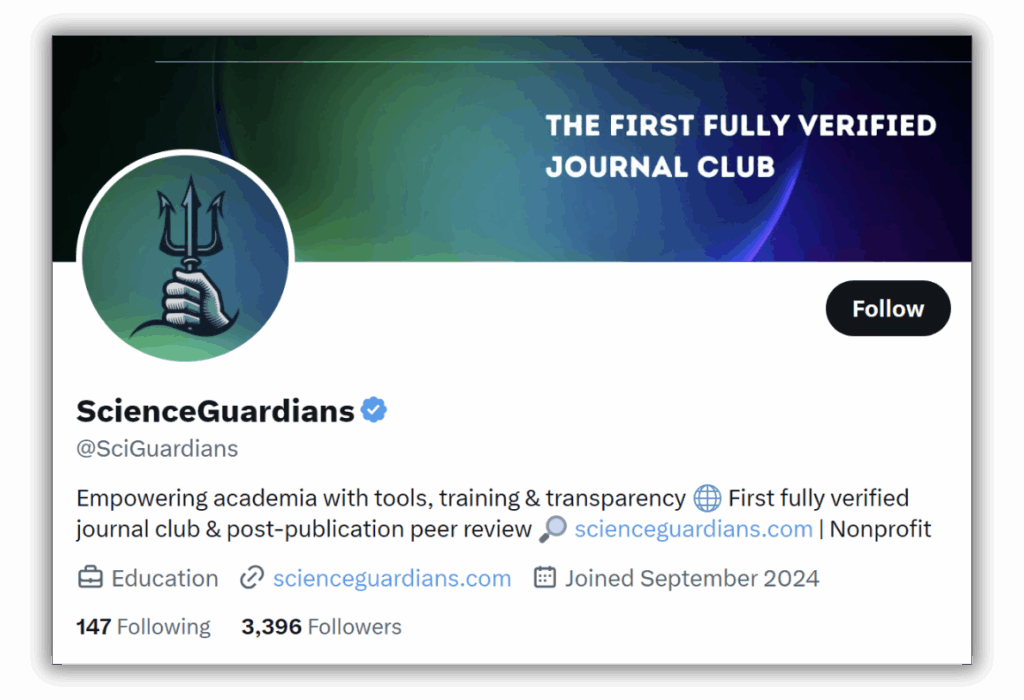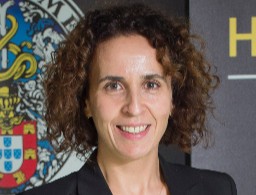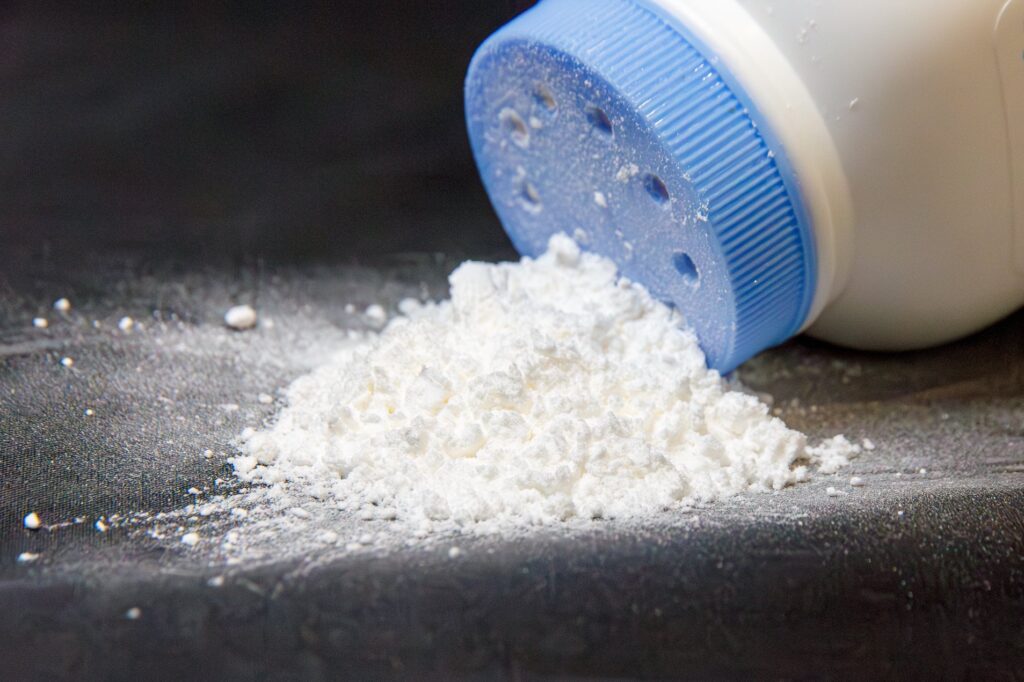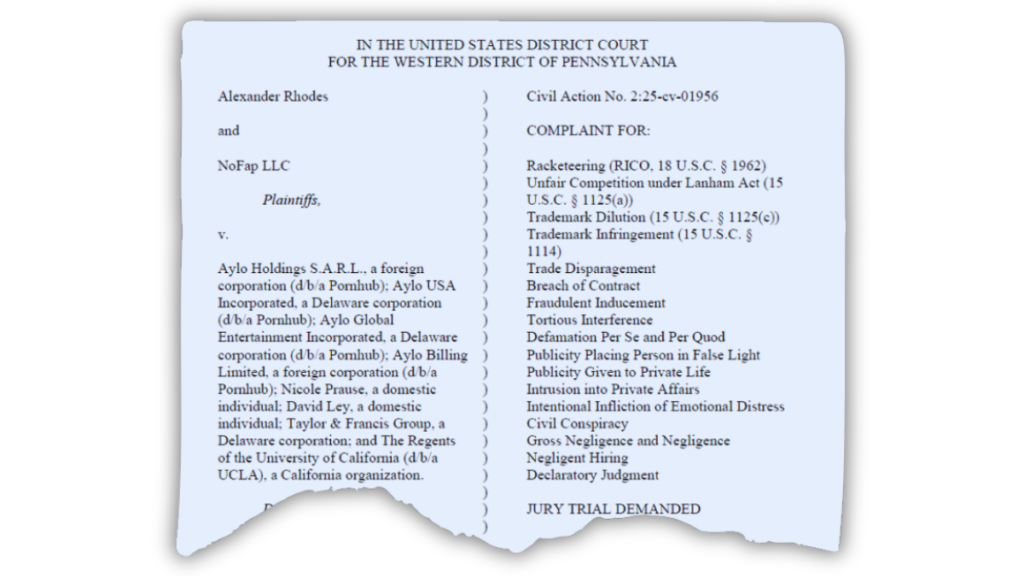
An online peer support group for people overcoming addiction to pornography has filed a lawsuit against the authors of a paper critical of the group, as well as the publisher Taylor & Francis, in an attempt to get the article retracted.
The 2023 study, published in Deviant Behavior, found the Reddit channel for the group NoFap had a higher rate of posts containing violent language compared with two similar subreddits.
Study coauthors Nicole Prause, a bioinformatics programmer with the University of California, Los Angeles, and clinical psychologist David Ley are named defendants in the lawsuit, filed December 30. NoFap and the group’s founder, Alexander Rhodes, are plaintiffs in the suit, which alleges the authors manipulated the data to make the subreddit seem uniquely violent.
Continue reading Porn addiction recovery group sues publisher, UCLA researcher over critical paper


